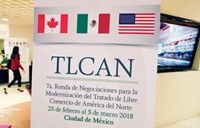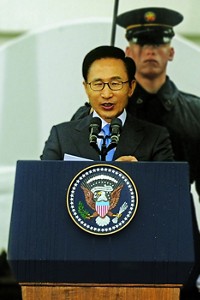Advertisement
Grab your lab coat. Let's get started
Welcome!
Welcome!
Create an account below to get 6 C&EN articles per month, receive newsletters and more - all free.
It seems this is your first time logging in online. Please enter the following information to continue.
As an ACS member you automatically get access to this site. All we need is few more details to create your reading experience.
Not you? Sign in with a different account.
Not you? Sign in with a different account.
ERROR 1
ERROR 1
ERROR 2
ERROR 2
ERROR 2
ERROR 2
ERROR 2
Password and Confirm password must match.
If you have an ACS member number, please enter it here so we can link this account to your membership. (optional)
ERROR 2
ACS values your privacy. By submitting your information, you are gaining access to C&EN and subscribing to our weekly newsletter. We use the information you provide to make your reading experience better, and we will never sell your data to third party members.
Policy
Effort To Conclude Trade Talks Collapses
August 4, 2008
| A version of this story appeared in
Volume 86, Issue 31
A bid for a breakthrough in the Doha Development Round of global trade talks failed last week when trade ministers from over 30 leading economies were unable to narrow their differences during nine days of marathon negotiations. The meeting at the Geneva headquarters of the World Trade Organization was widely viewed as the last chance for a conclusion to the long-stalled talks, which sought to lower trade barriers around the world. The negotiations collapsed after India and China insisted that they be allowed to impose "special import safeguards" to protect their agricultural products and manufactured goods. "Time and again, China and India reiterated how they could not lower their barriers but insisted we must lower ours," says John Engler, president of the National Association of Manufacturers. The chemical industry had hoped the talks would result in an agreement to eliminate tariffs on all chemical trade worldwide. "Trade negotiators have had nearly seven years to strike a deal that would help businesses grow organically in rich and poor countries," says Steve Elliott, chief executive of the Chemical Industries Association, in London. "It is politics, not economics, that have got in the way."







Join the conversation
Contact the reporter
Submit a Letter to the Editor for publication
Engage with us on Twitter